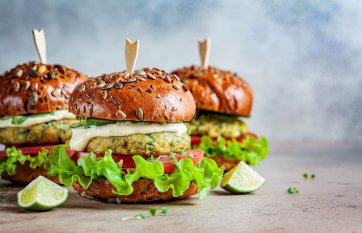You may not even know it, but you are a flexitarian! If you are not frightened by the thought of a plant-based meal. If you think you can eat without meat. If you eat meat, but occasionally. Then yes! You are a flexitarian, you are up to date with the most fashionable trend of recent times!
Consumers on all sides are bombarded with news of the deteriorating state of the environment. Climate warming and more and more frequent weather anomalies make us realize that if we do not start changing our lifestyle and eating habits, the world as we know it will disappear in several dozen years. Although we believe that heavy industry and transport are the most polluting, in fact 14.5% of global greenhouse gas emissions come from the production of meat and dairy products (UN / FAO). The United Nations considers industrial livestock farming to be the most environmentally damaging industry. There are four times more animals raised for meat in the world than humans,. They consume ¾ of world's drinking water demand and eat the majority of yield in agricultural feed. The livestock industry is three times more polluting than the rest of the world. Environmental pollution caused by the production of plant-based food is up to 50 times smaller!
It is utopian to think that we all completely give up eating meat and animal products. Vegetarianism and (especially) veganism seem to many people radical and complicated in everyday life. But since we have learned that it's easier to limit and reduce than to eliminate entirely - we have become flexible in our choices.
There are many reasons for flexitarianism: ecology and environmental protection, ethical considerations related to industrial animal husbandry and slaughter, and finally concern for one's own health. Everyone makes an individual decision on what is most important to them - but either way, each of these problems has one common solution: reducing the consumption of meat and animal products.
The awareness of Polish consumers about the need to change their diet is already quite common in all age groups. At the moment, it is estimated that 47% of all consumers in Poland are actively limiting meat consumption (e.g. by limiting the consumption of red meat) (IGS Group Report) - approximately 10% have completely abandoned it. A group of young adults is breaking records; it is a harbinger of major social changes. Among Polish citizens aged 18-25, over 50% declare that they do not eat meat (!!!) (Mintel), and in the next ten years they will become the main purchasing power in the economy.
The flexitarian diet is considered optimal for health. It ranks on the podium in the rankings of healthy diets, right behind the Mediterranean diet. The idea of plant-based nutrition with a small addition of meat (2-3 times a week) has many supporters. All thanks to a loose approach, no pressure or tension. The lack of a strict dietary regime, and therefore no remorse when the rules are broken, make this type of diet friendly and easy to implement daily.
Caring for meat reduction, we have many possibilities. In addition to completely meatless meals, we can also use meat products that use vegetables. Flexitarian products combining meat with vegetables or grains are becoming more and more popular with consumers. Thanks to them, we feel that we have done something good for the environment by reducing the amount of meat, and at the same time we took care of our own health by eating a portion of vegetables!
In addition to strictly vegetarian and vegan products, Libra's offer also includes items for flexitarians, of course also suitable for declared carnivores, for example kabanos sausages with 30% vegetable content or sausage with oat flakes.



